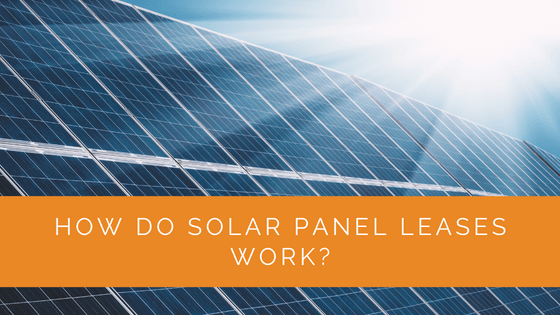Solar leasing has made solar more affordable to homeowners who may not have the financial means to put solar panel systems on their roofs. Solar setups were so costly that it was practically impossible for most households to afford one.
This was when solar leasing changed the solar business forever. With a lease, consumers avoid the upfront expenditures of solar and could reap all its advantages with a monthly leasing payment.
A solar system is now 70% less expensive than a decade ago, making various solar financing solutions that deliver bigger solar energy savings than leasing more viable.
This article will review everything you need to learn about solar leasing to decide if this loan option suits you.
Contents
- 1 Key Takeaways
- 2 Understanding Solar Leases
- 3 Operation of Solar Leasing
- 4 Provisions of Solar Lease Agreements
- 5 Evaluating the Suitability of Solar Leasing for Your Needs
- 6 Expert Insights From Our Solar Panel Installers About Solar Panel Leases
- 7 Case Study: The Benefits of Solar Leasing
- 8 Experience Solar Excellence with Us!
- 9 Wrapping Up
Key Takeaways
- Solar panel leases allow homeowners to access solar energy without the high upfront costs, with a typical lease term ranging from 20 to 25 years.
- By leasing a solar system, homeowners exchange their utility company’s electric bill for a lower monthly payment to a leasing company, resulting in potential savings on energy bills.
- While solar leases offer advantages such as no upfront costs, predictable monthly payments, and maintenance coverage, they also come with disadvantages like no eligibility for tax credits, lower long-term savings compared to ownership, and potential challenges when selling the home with leased solar panels.
Understanding Solar Leases
Leasing renewable energy panels is similar to leasing a car. You pay a solar installer a monthly payment; however, you don’t own the solar system. In exchange, you receive the solar energy generated by the panels, reducing your power cost.
Essentially, you are exchanging your utility company’s electric bill for a lower one offered by a leasing company.
A solar installer often collaborates with a different leasing firm to provide a residential solar lease. The installer is in charge of the solar panels’ design, installation, and maintenance.
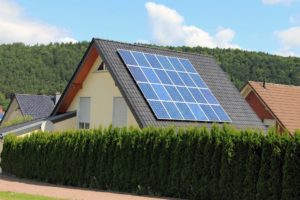
Operation of Solar Leasing
Once the solar system is mounted, you can utilize all the solar electricity the panels generate. Instead of relying on utility electricity, your home will be powered by the energy produced by solar panels.
Your power cost will be cheaper since you use solar energy rather than the grid. Suppose your solar panels produce enough electricity to match your energy consumption via net metering. In that case, you may be able to cut your electric bill entirely (except for some fixed costs that solar cannot offset).
However, you will still be required to pay the solar lease monthly. The lease cost will typically be less than your previous electricity bill before adding solar. So, if your monthly power cost is $150 and your lease fee is $100, a solar lease saves you $50 monthly.
However, remember that the solar panel may not always provide enough power to meet your electric cost. Perhaps there weren’t as many light and sunny days in any month as usual, or you used much more energy than expected.
In certain cases, you may need to draw extra energy from the grid’s electricity to satisfy your power requirements. So, you’ll have an electric bill and a solar leasing payment.
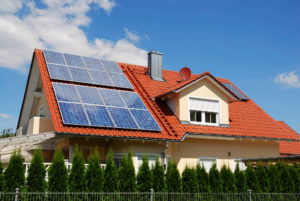
Provisions of Solar Lease Agreements
Each solar leasing contract is unique, although the fundamental provisions are often similar.
Solar leasing terms are typically between 20 and 25 years, corresponding to solar panels’ longevity. The solar manufacturer will typically provide a solar monitoring application for your mobile or internet so you can follow the performance of your solar panels.
The developer will also monitor your system to verify it is operating properly. If you experience any problems with the functioning of your solar panel system, the solar firm will fix it at no cost to you.
Solar leasing arrangements will contain a price escalation to match power cost increases, ensuring your lease payments will grow each year. The escalator is typically between 1 percent and 5 percent of the total amount.
If you decide to move, most solar businesses will let you pass the contract to the homebuyers, or you could break the contract and uninstall the panels. After your term, you can renew the lease, remove the panels, or purchase the panel at fair market cost or a sum specified in the contract.
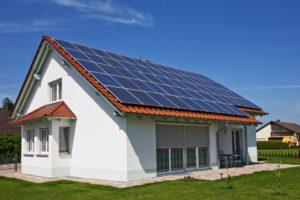
Evaluating the Suitability of Solar Leasing for Your Needs
Leasing a solar system may not be the best solution for everyone. Read some of the pros and cons of a solar lease before deciding based on your requirements.
Advantages
Here are some huge benefits of leasing a solar system:
No upfront costs
The best part about solar leases is that you do not need to pay the high upfront price of a solar system to get the advantages of solar energy. Because most of these leasing contracts are zero-down, you won’t have to pay large sums of money.
Lower your energy bills.
Solar leases will save you money on your electric account because the monthly repayments are meant to be less than your utility cost.
No maintenance responsibility
With a solar lease, you are not liable for the system’s upkeep. Solar panels are extremely low maintenance, needing only a hose to rinse five times yearly.
More major concerns, like inverter difficulties or damaged wiring, are likely already protected by the manufacturing company or installation warranty. Moreover, your homeowners’ insurance may cover storm damage.
So, you’d have these safeguards even if you just bought a solar panel setup.
Monthly payments are predictable.
Because it is specified in your contract, you will always know exactly what your monthly payment will be. This makes it easy to calculate your monthly costs.
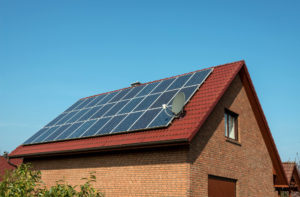
Disadvantages
Consider the following disadvantages before leasing a solar system:
No eligibility for tax credits
You are not eligible for any solar tax credit because you do not own the solar panels when you lease them. As a result, the federal tax credits would benefit the solar developer rather than you. Any state tax credit will also be distributed to the solar development company.
Long-term savings are lower.
The most significant disadvantage of a solar rental is that the long-term savings are significantly smaller than purchasing solar panels. When you buy solar panels instead, you may remove your whole power cost and need not stress about any extra monthly expenses.
Even when you take solar loans to acquire the solar panels, you will ultimately pay it off, and the solar panels remain yours; therefore, they will be producing power for you for free!
With a solar lease, you’re committing to making payments for 20 to 25 years. Over time, the sum you pay in lease liability might exceed what the system was worth! And the power generated by the panels will not be free.
Having trouble selling your house
In addition to not contributing value to your house, leased solar systems might make it more difficult to sell your home when your house has leased solar panels.
Few prospective purchasers will choose to take over a leasing arrangement centered on your energy use. Furthermore, many potential house buyers may be puzzled by the notion of a solar lease, throwing them off the idea of purchasing your property.
Expert Insights From Our Solar Panel Installers About Solar Panel Leases
Solar leasing has opened up opportunities for many homeowners who couldn’t afford the high upfront costs of solar systems. It’s a great way to start saving on energy bills immediately without a significant initial investment.
Senior Solar Installer
Leasing solar panels is an excellent option for those who prefer predictable monthly payments and no maintenance responsibilities. It takes the hassle out of solar panel ownership and provides peace of mind.
Lead Solar Technician
One of the key benefits of a solar lease is that you don’t have to worry about system maintenance. The leasing company handles all the upkeep, ensuring your system runs smoothly and efficiently.
Solar Installation Manager
Case Study: The Benefits of Solar Leasing
Background
Solar Panels Network USA prides itself on providing top-notch solar solutions, including solar leasing options, to make renewable energy accessible to everyone. We recently worked with a homeowner, John Doe, who was keen on reducing his energy bills but was hesitant about the high upfront costs of purchasing a solar system.
Project Overview
John’s primary goal was to switch to solar energy without a significant initial financial outlay. After a thorough consultation, we recommended a solar leasing option that would allow him to start saving on his energy bills immediately.
Implementation
We began by assessing John’s energy needs and the suitability of his property for solar panel installation. Once we established that his home received adequate sunlight, we partnered with a leasing company to provide a zero-down solar lease agreement.
The installation process was smooth and efficient. Our team installed a high-efficiency solar panel system on John’s roof, ensuring optimal placement to maximize energy production. The system was designed to cover approximately 85% of his household’s energy consumption.
Results
John’s switch to solar leasing resulted in immediate savings on his energy bills. He replaced his $200 monthly utility bill with a $150 monthly lease payment, saving $50 every month. Over the lease term, this translated to substantial financial savings, along with the added benefit of reducing his carbon footprint.
The leasing agreement included maintenance and monitoring, so John didn’t have to worry about the system’s upkeep. The solar company regularly monitored the system’s performance and promptly addressed any issues.
Summary
John’s experience with solar leasing through Solar Panels Network USA highlights the practicality and benefits of this financing option. The lease allowed him to enjoy the advantages of solar energy without the upfront costs, providing predictable monthly payments and comprehensive maintenance coverage. For homeowners like John, solar leasing offers an accessible path to renewable energy, substantial cost savings, and environmental benefits.
Experience Solar Excellence with Us!
Trust in Solar Panels Network USA, where our seasoned experts deliver top-quality solar solutions for homes and businesses nationwide. With a legacy of countless successful installations and a commitment to sustainable energy, we’re your reliable partner in the solar journey. Ready for a brighter, eco-friendly future? Call us now at (855) 427-0058 and harness the sun’s power!
Wrapping Up
Although solar leasing appears to be a good offer, there are few instances where it is the best choice for going solar. The only time a solar panel lease fits best is if you are ineligible for a federal tax incentive or a solar loan.
If you don’t want to make a cash purchase, taking solar loans is the best method to finance solar. You receive all the advantages of installing solar, such as lower utility bills and fueling your house with clean energy, without being concerned about the initial expenditures.
About the Author
Solar Panels Network USA stands at the forefront of solar energy solutions, driven by a team of seasoned solar engineers and energy consultants. With over decades of experience in delivering high-quality solar installations and maintenance, we are committed to promoting sustainable energy through customer-centric, tailored solutions. Our articles reflect this commitment, crafted collaboratively by experts to provide accurate, up-to-date insights into solar technology, ensuring our readers are well-informed and empowered in their solar energy decisions.

